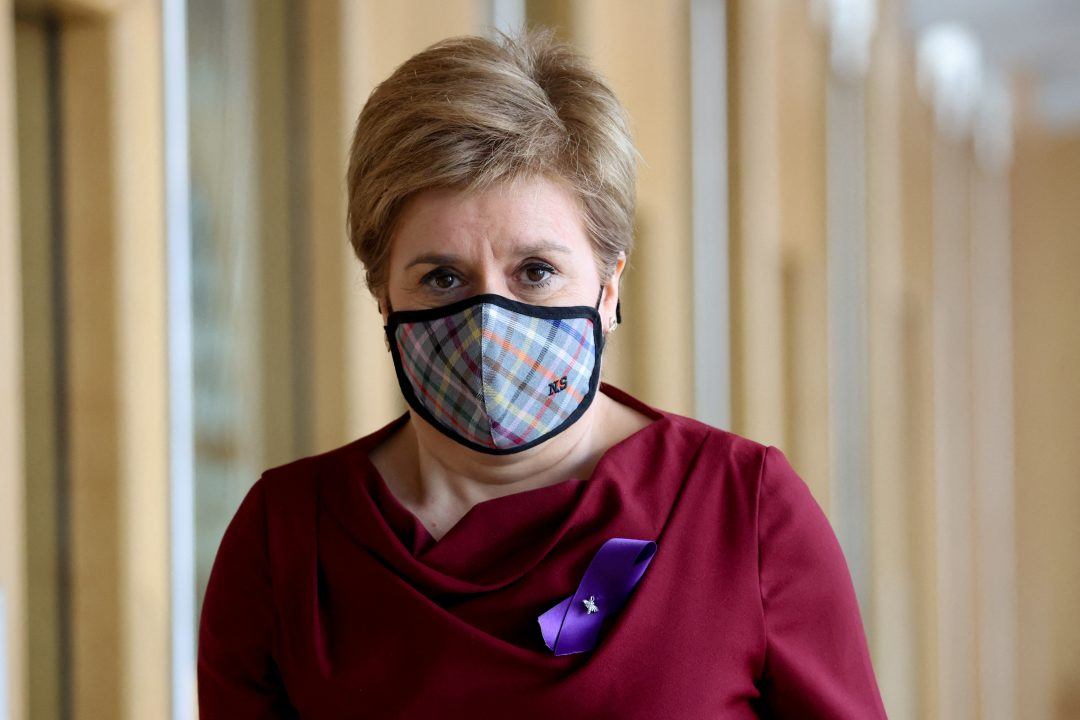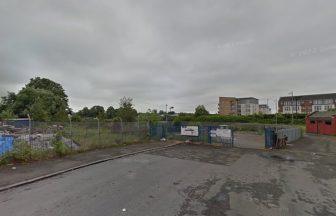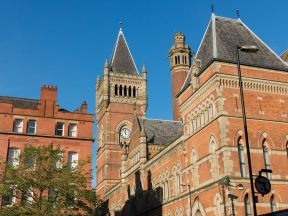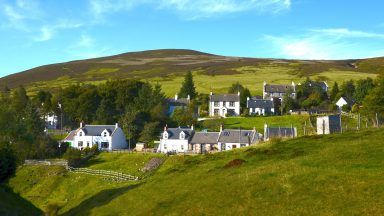Both the UK and Scottish governments were unprepared for the coronavirus pandemic and lives could have been saved if restrictions were brought in sooner, a public inquiry has concluded.
Baroness Hallet, the inquiry’s chair, described the response of both administrations in London and Edinburgh as “too little, too late”.
The 800-page report also recommended urgent reforms to decision-making processes, and said better communication is needed between the four nations of the UK during an emergency.
It described Nicola Sturgeon as a “serious and diligent leader”, but criticised the former FM’s clashes with former Prime Minister Boris Johnson and her approach of taking decisions within a small group.
Baroness Hallett acknowledged that leaders “were presented with unenviable choices” and said they “had to make decisions in conditions of extreme pressure”.
But she said there was a critical “lack of urgency” in the response of all four governments.
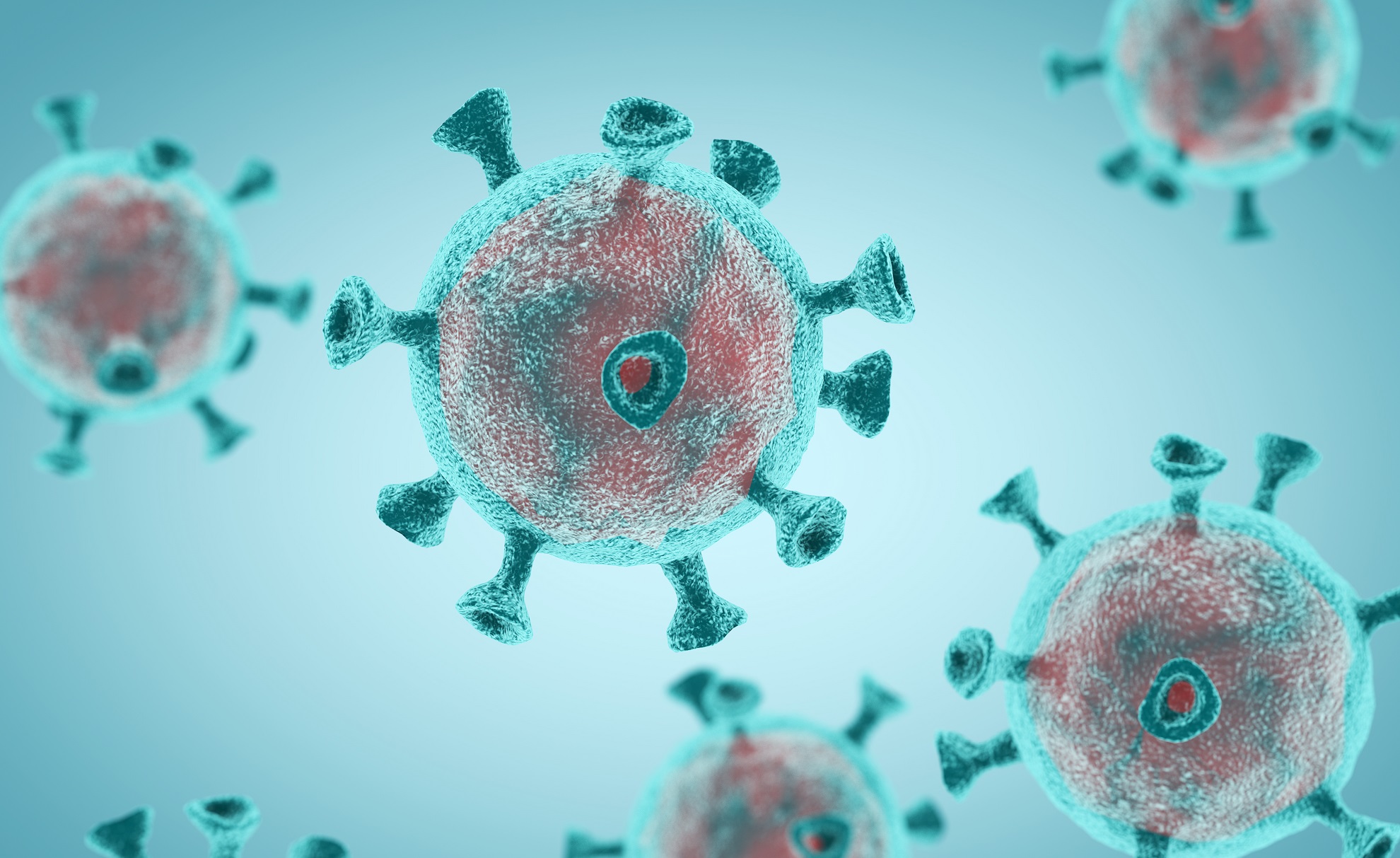 STV News
STV NewsThe devolved administrations in Scotland, Wales and Northern Ireland are described as being “too reliant on the UK government to lead the response”, having “failed to adequately conduct their own planning”.
It says the Scottish government had “no real strategy” between January and March other than monitoring the spread of the virus.
The report also said former prime minister Boris Johnson presided over a “toxic” culture in Number 10 and regularly changed his mind, while cabinet members including then health secretary Matt Hancock plus key scientists all failed to act with the urgency needed to tackle the virus.
Baroness Hallett said Johnson’s special adviser, Dominic Cummings, used “offensive, sexualised and misogynistic” language as he “poisoned” the atmosphere in Downing Street.
The inquiry found that the first and second lockdowns of the pandemic were not inevitable, but the government was left with no choice after failing to implement measures such as social distancing and household quarantine earlier.
Not imposing any lockdown at all when it became apparent there was no choice would have “led to an unacceptable loss of life” but bringing in one a week earlier, on March 16, would have cut deaths in the first wave to July “by 48% – equating to approximately 23,000 fewer deaths” in England.
Baroness Hallett said: “There was a serious failure by all four governments to appreciate the level of risk and the calamity that the UK faced and the need to inject urgency into the response.
“The obviously escalating crisis required leadership from the very top.
“All four governments knew that in the reasonable worst-case scenario, up to 80% of the population would be infected with a very significant loss of life.
“At the same time, it also became clear that the test and trace system was inadequate for a pandemic as a result of flawed pandemic planning.
“Yet still they failed to take the necessary steps. This meant a national lockdown became more likely.”
On the first national lockdown, Lady Hallett said: “The decision to impose the first UK-wide lockdown was remarkable for the failure on the part of all four governments to anticipate or plan for the possible need for a mandatory lockdown.
“Plans for imposing stringent restrictions and for lifting restrictions should have been worked out from the outset. They were not.
“None of the governments in the UK had adequately prepared for the challenges and risks that a national lockdown presented.
“They did not scrutinise sufficiently seriously its wider societal workforce and economic impacts.
“In particular, the impact on the vulnerable and the disadvantaged and the impact of school closures on children’s education and their physical and mental health.”
Deputy first minister Kate Forbes said it was vital to “learn lessons from the pandemic to make improvements for the future”.
Speaking in the Scottish Parliament, she said: “Covid was a unique virus which presented governments across the world with unprecedented challenges.
“The Scottish Government’s focus throughout was on protecting the people of Scotland and all decisions were taken in good faith. However, it is vital we learn lessons and strengthen our response to any future emergencies.
“The Scottish Government is committed to giving thorough consideration to the findings and recommendations from both the UK and Scottish Covid-19 Inquiries. This open and transparent process will be informed by a Covid Inquiries Response Engagement Group, which will meet next month and include representatives of bereaved families.”
Nicola Sturgeon’s response to the report in full
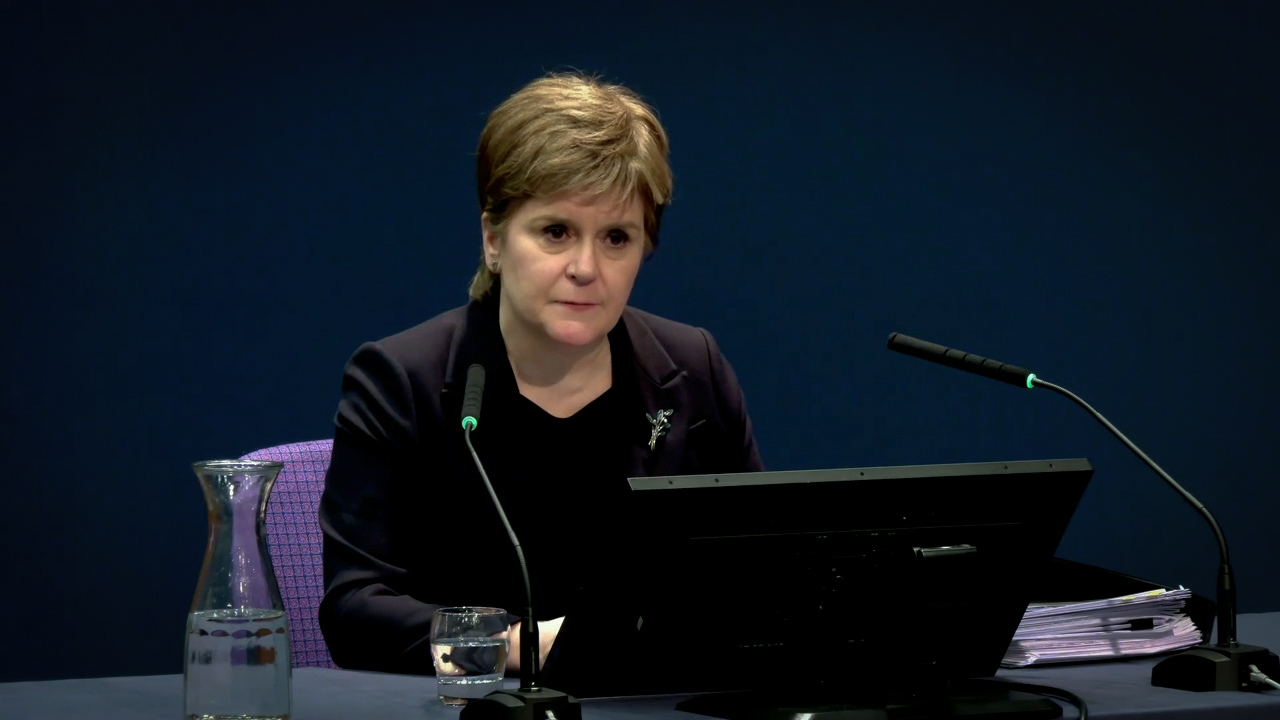 STV News
STV News“My job during the pandemic was nowhere near the hardest in the country, but leading Scotland through Covid was by far the toughest experience of my time as First Minister. Five years on, I still think every day about the impact of the decisions I took.
“Given the unprecedented and highly uncertain nature of the situation we faced, it was inevitable that mistakes would be made, and I know that I made my share. I will carry an acute sense of responsibility for this for the rest of my life. My thoughts will always be with those who lost loved ones during this awful time and with all those who, in so many different ways, suffered as a result of the Covid virus.
“The Inquiry concludes that restrictions should have been introduced earlier. Albeit with hindsight, I agree with this assessment and said so in my evidence to the Inquiry.
“However, I also appreciate the Inquiry’s acknowledgment that the Scottish Government’s gradual lifting of restrictions and its targeted measures in autumn 2020 avoided a second national lockdown at that stage.
“The Inquiry – while referring to me as ‘a serious and diligent leader’ – suggests that decision-making in the Scottish Government might have been overly centralised. While all of my ministers and relevant officials played a full role in decision-making, it is certainly the case that I decided at the outset to lead from the front and make clear that the buck stopped with me. I stand by that.
“My daily briefings were about providing open, supportive and empathetic leadership in an extremely unpredictable and frightening situation.
“They gave me a way of sharing with the public what we knew and didn’t know, how that was changing as time passed, what we are asking people to do, and why. Even now, I hear on an almost daily basis from members of the public about how important these daily briefings were, practically and emotionally, in helping them through this period.
“At every stage, in absolute good faith and based on the best information and advice available to me, I took decisions that I judged most likely to minimise harm to people in Scotland. In the months before we had effective treatments or vaccines, that meant taking a highly precautionary approach, seeking to keep the virus as suppressed as possible. I stand by that.
“Finally, I want to thank people across Scotland once again for the steadfast efforts and selfless sacrifices they made throughout the pandemic. I also thank the Inquiry for its work.”

Insight Laura Alderman
I’m at County Hall in London where journalists were locked in earlier to get an advance copy of the UK Covid Inquiry’s latest report – perhaps its most detailed and contentious one yet.
It’s almost 800 pages long and looks at the decisions made during the pandemic within the UK government and the devolved nations during that time – such as the timing of lockdowns and the impact of restrictions on the most vulnerable.
Almost two years ago, back in January 2024, the inquiry sat in Edinburgh for three weeks and heard from leaders in the Scottish Government and expert advisors.
That’s when we found out that crucial WhatsApp messages between Nicola Sturgeon and others had not been retained, nor had any minutes of what were called the Gold Command meetings chaired by the FM.
But the findings in this report today are pretty damning in parts. The chair of the inquiry, Baroness Hallett, found the response of all four governments was repeatedly “too little too late”. In short, if the UK had been better prepared, lives would have been saved and serious harm would have been reduced.
It also found a “toxic and chaotic“ culture was at the centre of the UK Government and said allegations of rule-breaking by ministers caused huge distress to the public, including the “party gate” scandal and a trip made by chief medical officer Catherine Calderwood to her second home in April 2020.
The inquiry was also examining accusations that Sturgeon alone was making almost all the decisions for Scotland.
You might remember that Jason Leitch, the national clinical director, said Sturgeon kept a “tight cast list” and really wanted no one else to be involved.
The inquiry found that while Sturgeon was a “serious and diligent leader”, authority in the Scottish Government rested with a small number of ministers, which then “diminished the role of the Scottish cabinet.”
The inquiry recommended that this should not be repeated in future.
Today’s findings are long-awaited, no more so than for the hundreds of thousands of families who have lost a loved one to Covid.
Many of them want officials to be held accountable, and for many of the inquiry’s findings to be implemented so lessons can be learnt for any future pandemics.
Follow STV News on WhatsApp
Scan the QR code on your mobile device for all the latest news from around the country


